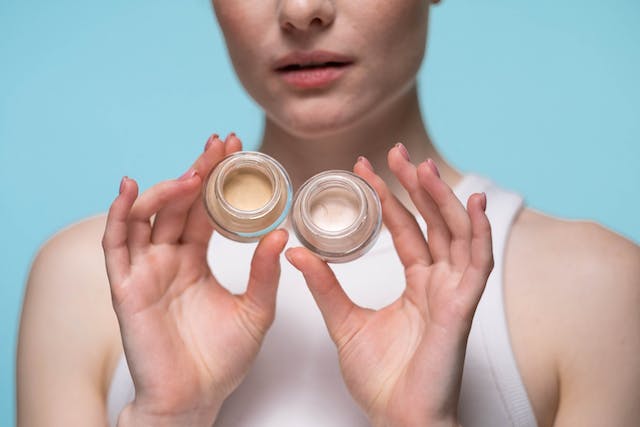In the dynamic realm of beauty and skin care, the terms “organic” and “natural” have become more than just buzzwords: they are a conscious choice for individuals seeking a healthier, sustainable approach to their beauty routines. As the popularity of these products increases, so does the cloud of myths surrounding them. In this blog post, we embark on a journey to dispel common misconceptions about organic and natural cosmetics, with an emphasis on makeup and the vibrant landscape of natural cosmetics in Australia. By the end, you will be equipped with the knowledge to make informed decisions, navigate the beauty aisle with confidence and embrace the unique offerings of the Australian natural cosmetics market.
Myth #1: All natural products are organic
Let’s clear the air right away: not all natural products are organic. It is easy to assume that the terms are interchangeable but have different meanings. “Natural” means that the ingredients come from nature, but does not guarantee the absence of synthetic chemicals. On the other hand, “organic” implies a commitment to sustainable and chemical-free agricultural practices.
Look for reputable certifications such as USDA Organic or COSMOS to ensure you are getting a truly organic product. Don’t be fooled by labels that scream “all natural”; Always check the ingredients list for clarity.
Myth #2: Organic cosmetics are less effective
There is a common misconception that organic cosmetics are less powerful than their conventional counterparts. This myth often stems from the belief that synthetic chemicals are necessary for products to be effective. However, the truth is that many natural ingredients have impressive efficacy.
Organic skin care formulations often harness the power of botanical extracts, antioxidants and essential oils, promoting external beauty and overall skin health. Don’t underestimate the power of natural organic cosmetics. They can be as effective or even more effective than their chemical-laden counterparts.
Myth #3: All chemicals in cosmetics are harmful
Let’s debunk the overarching assumption that all chemicals in cosmetics are harmful. The reality is that everything is made of chemicals, even water. What matters is understanding the distinction between toxic and safe synthetic chemicals.
Natural ingredients can harm some individuals, just as synthetic ones can be safe. The key is to be informed. Look for products with transparent labeling; If in doubt, consult a dermatologist. The devil is in the details; A little knowledge about ingredients goes a long way in making informed choices.
Myth #4: Organic cosmetics are expensive and inaccessible
Contrary to popular belief, incorporating organic beauty into your routine doesn’t require spending a lot of money. While some high-end brands come with a hefty price tag, there are plenty of budget-friendly options available.
Many brands are doing everything they can to make organic makeup accessible to everyone. Look for local and independent brands that prioritize high-quality ingredients without the premium price. Investing in organic skin care may seem like an initial expense. Still, the long-term benefits for your skin and the environment often outweigh the initial costs.
Myth #5: Natural means non-allergenic
It’s time to dispel the myth that natural ingredients are universally non-allergenic. Although natural products may seem gentler, they can still cause allergies in some individuals. Common natural allergens include lavender, chamomile and certain essential oils.
Always perform a patch test before introducing new products into your routine to avoid possible skin reactions. Awareness of common allergens and understanding your skin’s sensitivities are crucial to a harmonious relationship with natural beauty products.
Myth #6: Organic cosmetics have no expiration date
The idea that organic products do not contain preservatives and have a shorter shelf life is a common misconception. In reality, organic cosmetics use natural preservatives to maintain efficacy and safety.
Understanding the ingredients in your products and following proper storage guidelines can significantly extend their shelf life. Like any other beauty product, organic cosmetics thrive when stored in a cool, dry place, away from direct sunlight.
Myth #7: The term “fragrance-free” means chemical-free
The final myth we’ll tackle revolves around the term “fragrance-free.” While it may seem synonymous with chemical-free, that is not always true. Some products labeled as fragrance-free may still contain masking agents to neutralize the odor of other ingredients.
For sensitive skin or fragrance allergies, you can opt for products explicitly labeled ‘unscented’ or natural fragrances derived from essential oils. Reading ingredient lists and understanding the source of fragrances in a product is critical for those who want to minimize exposure to certain chemicals.
Myth #8: Natural ingredients are always sustainable
It is a common assumption that a product containing natural ingredients must be environmentally friendly. While natural ingredients are a step in the right direction, sourcing and harvesting these ingredients can still impact ecosystems.
Look for brands that prioritize sustainable sourcing practices, such as fair trade certifications and commitment to biodiversity. Understanding the carbon footprint of your beauty products ensures you are contributing to a more sustainable and ethical industry.

Myth #9: Organic cosmetics do not require animal testing
Although many organic and natural beauty brands are cruelty-free, it is a myth to assume that they all abstain from animal testing. Some brands may still conduct animal testing, especially if they sell their products in markets where animal testing is required by law.
If cruelty-free and ethical practices are a priority for you, research brands with certifications like Leaping Bunny or PETA’s cruelty-free logo. These symbols guarantee that the brand is committed to not testing on animals at any stage of product development.
Myth #10: Organic produce always smells earthy or spicy
Contrary to popular belief, not all organic products have that distinct earthy or spicy scent. While some derive their scent from natural essential oils or botanical extracts, many organic brands offer a variety of scents to suit different preferences.
The misconception that organic equals a specific scent can limit choice for those who prefer a variety of scents. When exploring organic products, be open to discovering a spectrum of aromas, from floral to fruity, and make sure your beauty routine suits your olfactory preferences.
Myth #11: All chemical-free products are suitable for all skin types
The belief that chemical-free or natural products are universally suitable for all skin types is a common misconception. Natural ingredients can be powerful, and specific formulations may only be ideal for some. For example, although natural oils can irritate sensitive skin.
Understanding your skin type, specific concerns and possible sensitivities is crucial when choosing skin care products. Perform patch tests and pay attention to how your skin reacts to different formulations, even if they are labeled “chemical-free” or “natural.”
Conclusion
In organic and natural cosmetics, misinformation can cloud our judgment. Armed with the knowledge to separate myth from fact, you are now better equipped to make choices that align with your values and prioritize the health of your skin. Embrace the power of informed decision-making and let your beauty routine reflect the harmony between nature and science.





